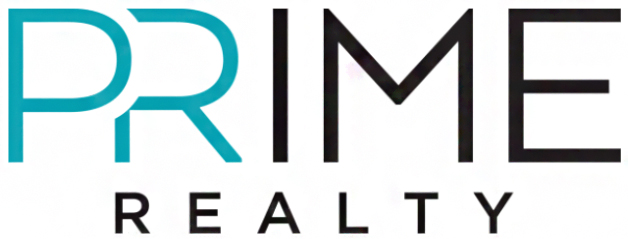Mortgage Loan Application
Applying for a mortgage is something that most people never learn to do until the time comes. And when that time comes, many can feel like they’re already 10 steps behind. If you’re in the process of buying a house, that most likely means you have your finances in order and a budget set in place. So, what’s next? When you’re shopping for a lender, consider different options like your bank, local credit union, or online lenders. Mortgage brokers offer a considerably wider array of options and can streamline the mortgage process for you.
Let’s Begin

Once the seller accepts your offer, you’ll need to apply for a loan. According to Bank of America, “All lenders require you to provide information about yourself and anyone else who will be listed as a co-borrower on the mortgage.” Keep in mind that each lender has their own criteria, so the results of your application can vary. On average, it can take anywhere from 30 days to several months for your application to be approved. The exact forms for different applicants vary but a lender can gauge whether you’ll be approved by checking out your recent pay stubs, bank statements, W-2 Forms, and tax returns.
Your financial situation affects the documents you are required to submit, but here are seven commonly requested documents:
1. Tax Returns
Your tax returns allow lenders to gauge your financial health. For the lender to be able to request a copy of your tax return to the IRS, you must provide the lender with a signed Form 4506-T. They want to see one to two years’ worth of tax returns.
2. Pay stubs, W-2s or other proof of income
Pay stubs allow lenders to gauge your current earnings. For those of you that are self-employed, you might be asked to show proof through 1099 forms, direct deposit or other methods.
3. Bank statements and other assets
Lenders request these documents to verify your financial standing. Since lenders are assessing your risk profile, they’ll look at your bank statements and other assets. Any traces of savings or emergency savings plans will be taken into consideration when reviewing your application. Lenders want to know how prepared you are for an emergency. Having 3-6 months of savings equivalent to your living expenses will indicate that you are responsible and prepared for an emergency. They’ll also reference your investments assets like your life insurance. They will also analyze the amount of time the direct deposit’s total has been in your account and verify it didn’t appear overnight in your account.
4. Credit History
With your verbal or written consent, lenders will pull your credit report. Industry members advise you to be prepared to write a statement that explains negative items in your credit report. For example, if you underwent a short sale or foreclosure, you would include stating so. Not disclosing blemishes will delay the application process and could even prevent mortgage approval.
5. Gift Letters
If you are in the position that your friends and family can give money towards your new home, then you’ll have to provide written information that the money is in fact a gift and not a loan.
6. Photo I.D.
Solely to verify you are who you claim to be.
7. Renting History
A person’s rental history is vital for applicants who don’t have an extensive credit history. Lenders will request proof that you were an ideal tenant who paid on time. Lenders could ask your landlord to provide documentation backing up your claim or ask for a year’s worth of canceled rent checks (checks that were cashed by the landlord).
 Locking in your interest rate
Locking in your interest rate
According to Bank of America, “A rate lock, also known as a rate commitment, is your lender’s assurance that the interest rate and discount points are guaranteed until the rate lock expiration date.” Talk to your lender about ways you can protect yourself against rising interest rates. If you’re worried about the rising rates, you can lock your rate with your lender when you fill out the application. You are not obligated to do this if you believe the rates will decrease prior to signing off on your new house, but the rate must be finalized and locked in prior to the lender preparing your closing documents.
At the time of signing, you need to already have your budget set for the down payment. According to Patch.com, “the long-accepted ‘standard’ down payment for buying a home is 20% of the total sales price.” Make sure to also budget for the anticipated appraisals, inspections, and the home’s closing costs.
Prospective Buyers
What is a prospective buyer? A prospective buyer is:
- a person who has submitted an offer to the seller, but the seller has yet to accept the offer.
- a person who is in preparation to buy their first home.
- a person who expresses interest towards a specific property but has yet to make an offer.
- a person who has begun their home search but has yet to select a specific property.
- a person whose offer has been accepted by the sellers, the negotiation process may or may not already be underway, and the closing documents are what’s left to sign.
From a legal standpoint, the term prospective buyer is most commonly reserved for once the potential buyer’s offer has been accepted by the seller. It can be essential to know whether you qualify as a prospective buyer for legislative reasons. South Carolina is included in the sum of states that acknowledges and accepts the term: prospective buyers.
Why is it important?
Because the prospective buyer is entitled to certain rights during the sales process. In some areas across the nation, the potential buyer isn’t classified as a prospective buyer until an offer is submitted, as a legal standpoint. In other areas, the status isn’t disclosed to the buyer until the seller has accepted their offer.
Why have I been refused a mortgage?
According to Experian, if you are refused a mortgage, here are a few common reasons why:
- The lender has calculated you won’t be able to make the repayments.
- You’ve made too many credit applications in a short space of time in the past six months, resulting in multiple hard searches being recorded in your report.
- You’re not registered to vote on the electoral roll (this is used for proof of your address and identity).
- There are mistakes such as incorrect addresses or other errors on your application form.
- You may not fall into the target bracket for the type of mortgage you’ve applied for. (Experian, 2022)
Community Assistance Programs
1.) SC Housing
2.) Community Works Downpayment Assistance
3.) GCRA
“Established in 1974, the Greenville County Redevelopment Authority (GCRA) works to improve the living conditions of the county’s residents by building new homes, rehabilitating existing homes and improving the infrastructures within communities.”
Did you know you could be eligible for down payment assistance?
Qualifications: Eligible Buyer
- Must be a first-time home buyer
- Stable income
- Secure a 30-year, fixed rate 1st mortgage
- Complete the application process
- Invest a minimum of $500 into the home purchase
- Attend a community works orientation
- Attend a homebuyer education workshop through GVL County Human Relations Key Program
Qualifications: Eligible Properties
- New and existing properties in GVL County
- Max purchase price for new construction is $240,000
- Max purchase price for an existing home is $195,000
- The home must be the buyer’s principal residence
- Monthly mortgage payment must be affordable (33% of monthly income)
Eligible Uses
- Funds may be used for down payment and for closing costs.
- The total of bank mortgage on the property may not exceed 100% of the appraised value. (This does not include funds from Community Works.)
- Buyers may not receive any funds back at the time of closing.
Thank you for reading our blog! If you have any questions or are looking for a recommendation, please email us at info@primerealtysc.com.


